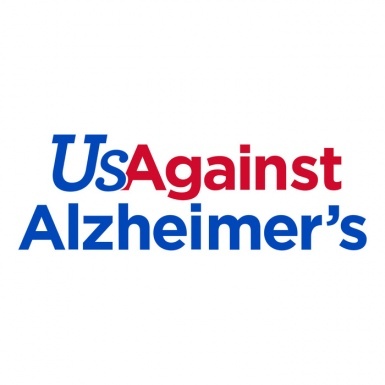The Changing Face of Caregiving in the 21st Century
Sign up and receive information on the latest news and updates.
November is National Alzheimer’s Month and Family Caregivers Month, offering an important opportunity to reflect on the changing role of caregiving and how dementia is shaping our nation’s care crisis. We kicked off this month with former first lady Rossalyn Carter and leaders from across the country at The Rosalynn Carter Institute’s Caregiving in the 21st Century Summit where we explored these themes.
The Rosalynn Carter Institute for Caregiving combined the traditional voices of health providers with more unconventional perspectives, including Sesame Street’s Rosita and award-winning journalist Judy Woodruff, to develop solutions to support our nation’s 40 million family caregivers. Several key themes emerged during the day-long session that deserve continued reflection and action from policymakers, employers and the health system.
The future of caregiving is young and diverse.
According to AARP, 10 million millennials are providing family care in the U.S. and they are more racially diverse than their older counterparts. In fact, more than half of Millennial family caregivers are Hispanic/Latino, African American/Black, or Asian American/Pacific Islander.
Of this growing segment of the caregiver population, 1.5 million are providing care for a loved one living with dementia. In some cases, millennial caregivers must put their lives on hold.
Lisette offered her perspective of the balancing act of trying to manage work while taking care of a parent: “I had just graduated college trying to figure out what career I wanted to pursue. At the same time, I was coordinating my father’s care. It was stressful trying to have a social life, professional career, and be a caregiver all at the same time.”
Employers have a critical role to play in supporting family caregivers.
According to a Harvard Business School survey, only 24% of employers said that caregiving influenced workers’ performance. In contrast, more than 80% of employees with caregiving responsibilities admitted that caregiving affected their productivity.
Employers will need to step up as more of their employees find themselves taking on the role of caregivers. Policies such as paid family and medical leave will become increasingly important to easing the caregiver hardship faced by employees in the face of chronic diseases such as Alzheimer’s.
Lisette noted the stress on her mother and how flexibility would provide some relief for caregivers: “My mom was worried about taking time off work to take care of my dad. She believed she was going to lose her job or get less hours at work. She was constantly stressed out that her manager would not understand her situation.”
Addressing dementia should be a priority for alleviating caregiver hardship.
Dementia emerged as a theme throughout the day, embedded in the personal stories shared by presenters and as a key driver of caregiver hardship in the U.S. Dementia caregivers provide an estimated 18 billion hours of unpaid family care across the country.
Equitable solutions are critical to support all caregivers and communities.
Throughout our discussions at the Rosalynn Carter Institute for Caregiving, we highlighted the disproportionate impact of caregiving and chronic diseases like Alzheimer’s on people of color and women.
We underscored the importance of developing equitable and tailored solutions, reinforcing how important it is to support caregivers who may have separate needs and issues as a person even as they are helping a loved one.
We continue to be inspired by passionate young #Alzheimers advocates like @ohmylisette ! She took on the role of #millennialcaregiver at the age of 27 caring for her father who had #Alz & shares her story to make a difference. You made papi proud & you’ve made us all proud! https://t.co/219czNwnAk
— Hilarity for Charity (@Hilar4Charity) November 6, 2019
“We need caregiver solutions that are cross-cultural, intergenerational and that are rooted in economic and racial justice” @jason_r_DC at #21stCenturyCaregivers @RCICaregiving #BrainHealthEquity pic.twitter.com/w04igunQFV
— LatinosAgainstAlz (@UsA2_Latinos) November 5, 2019
